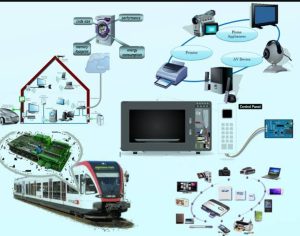The Role of Project Manager in Custom Enterprise Software Development
Ever thought about making your business better with custom enterprise software?
A project manager can help! This person is like the captain of a ship, guiding the team to create software just for you. They talk to you about what you need and then explain it to the tech team. In the world of making special software for businesses, a project manager is your helper and planner.
They make sure the software is perfect for your unique needs. Ready to learn more?
Activity and Resource Planning
The job of a project manager in custom enterprise software development is important. In “Activity and Resource Planning,” they figure out what jobs need to be done and what tools are needed to do them.
They break the big job into smaller jobs, guess how long each job will take, and pick the right person for each job. They also choose the project management software, which helps them to:
- keep work organized
- watch how things are going
- make sure resources are used well
By planning jobs and managing resources well, the project manager makes sure the project runs smoothly, finishes on time, and doesn’t go over budget.
Organizing and Motivating the Team
In custom enterprise software development, a project manager is like a team coach. For “Organizing and Motivating the Team,” they put together a group of people with the right skills for the job.
They also make sure everyone knows their roles and what they need to do. But that’s not all – a good project manager helps the team stay excited about the work. They celebrate wins, big or small, and help solve problems when things get tough.
They keep the team focused on the client’s needs, which leads to better client engagement. By organizing and motivating the team well, the project manager helps the project succeed and makes the client happy.
Controlling Time Management
In custom enterprise software development, the project manager’s role in “Controlling Time Management” is key. They are responsible for making sure everything gets done on time.
To do this, they plan out all the tasks that need to be done and decide when each one should start and finish. They also keep an eye on how things are going and make changes if needed to stay on schedule.
They handle any issues that might slow things down and find ways to keep things moving. The project manager uses their skills in IT services to help with this, using tech tools that can track progress and help manage time better.
By controlling time management, the project manager helps to make sure the project finishes on time and meets the client’s needs.
Cost Estimating and Managing the Budget
In making custom software for businesses, the project manager has an important job in “Cost Estimating and Managing the Budget.” They guess how much the project will cost before it begins.
This includes things like how much to pay the team, what tools are needed, and other costs that might pop up. Once the work starts, the project manager watches the budget to make sure the team doesn’t overspend.
If they see that costs are going up, they look for ways to lower them. By carefully guessing costs and watching the budget, the project manager makes sure that the project doesn’t cost more than planned. This helps the client get the most for their money.
Quality Management
In creating custom software for businesses, the project manager is in charge of “Quality Management.” They make sure the software is made well. This includes checking that the software works right, that it does what it’s supposed to do, and that it’s easy to use.
The project manager also makes sure that the team is doing their best work. If they see something that isn’t right, they figure out how to fix it. They might ask a team member to redo their work, or they might find a better way to do something.
By taking care of quality management, the project manager helps make sure the software is the best it can be. This makes the client happy and helps the business succeed.
Risk Management
When it comes to making custom software for businesses, the project manager has a key role in risk management. They need to think about what could go wrong with the project.
This might be things like the team not finishing on time, the software having problems, or costs going up too much. The project manager makes plans for these risks. They figure out how to stop them from happening, or how to deal with them if they do happen.
By managing risks, the project manager helps to make sure the project goes smoothly. This means the client gets their software on time, it works well, and it doesn’t cost more than expected. All of this helps the business do well.
Communicating with Stakeholders
In creating custom software for businesses, a key task of the project manager is “Communicating with Stakeholders.” They talk with the people who have an interest in the project. This could be the client, the team making the software, or others in the business.
The project manager shares updates about how the project is going. They listen to questions and concerns and give clear answers. They also make sure everyone understands what’s happening and what’s expected.
Good communication helps keep the project on track. It helps everyone work together and avoids misunderstandings. This makes the process smoother and ensures the final software meets everyone’s needs. Good communication is key to a successful project.
The Power and Potential of Custom Enterprise Software
Custom enterprise software development is an investment that can propel businesses into a future of efficiency and innovation. These tailor-made solutions, as seen from multiple sources, are designed to address unique business needs, streamline operations, and enhance productivity.
They offer flexibility and scalability that off-the-shelf software often lacks. However, successful implementation requires careful planning, risk management, and clear communication with stakeholders.
As the digital landscape continues to evolve, the demand for custom enterprise software will only grow.
It’s an exciting time for businesses ready to leverage technology to its full potential.
Did you find this article helpful? You can check out our website for more awesome content like this.




